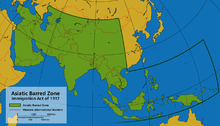Last week, the world was a bit more humane, more sane. Last week, Teodora Ristea was getting up every day to feed, clean, and tend to the hundreds of street dogs in her care. In 2005, at 60 years old, Teodora found her mission: saving stray dogs in her town of Slatina, Romania from slaughter and torture.
Teodora didn’t have pink ribbons for her cause… or a slogan. She didn’t have a board of directors, she didn’t worry about the politics of those she helped, and the money she collected went directly to the dogs………….

Last week, she was caring for upwards of 500 dogs at Prietenii Nostri, a daunting venture in a country where many of its human inhabitants face hard times and have scarce resources.
I imagine there is little left, in most people there, to worry or have empathy for the even harder life of millions of street dogs.
Seven days ago, Teodora woke up and, as she did most every day since opening the shelter, went to care her dogs despite her own ill health.
 It was there, among her beloved friends, her dogs, that she collapsed. She was taken to a hospital in Budapest, where she lay in a coma.
It was there, among her beloved friends, her dogs, that she collapsed. She was taken to a hospital in Budapest, where she lay in a coma.
This morning, I received an e-mail from her daughter, Gratiela, to let me know that Teodora has died:
She has died pfiore…
Im so down…
Teodora had me when she was almost 40 yrs old and she gone so fast and let me to fight alone…
she is teodora, she is my mother, she is the soul and the heart of the shelter….She was every single day there, her body was exausted of too much work and stress. The attacked happened when she just arrived from the shelter…
The dogs are ok, very cold and lot of snow…
Some money have been raised with your help, i think somewhere about 500 euros.
The dog with 2 legs had 2 surgeries and will be adopted this month… I had also an update to send you but was not ready…
Thanks so much for all
Lot of love for you and bobby (my romanian dog) and thanks for all
Teodora is gone, but she is not an unsung hero. There are many humans and hounds who have benefited from her love, her belief in us to be better, to find better lives. She has graced this world with her strength and her determination, and on her behalf, I will continue to do what I can to help Teodora’s 400 cold dogs…

This link brings you to Prietenii Nostri and ways to help Teodora’s dogs.
cross posted at writing in the rAw and Daily Kos


 On this day in 1917, with more than a two-thirds majority, Congress overrides President Woodrow Wilson’s veto of the previous week and
On this day in 1917, with more than a two-thirds majority, Congress overrides President Woodrow Wilson’s veto of the previous week and 



